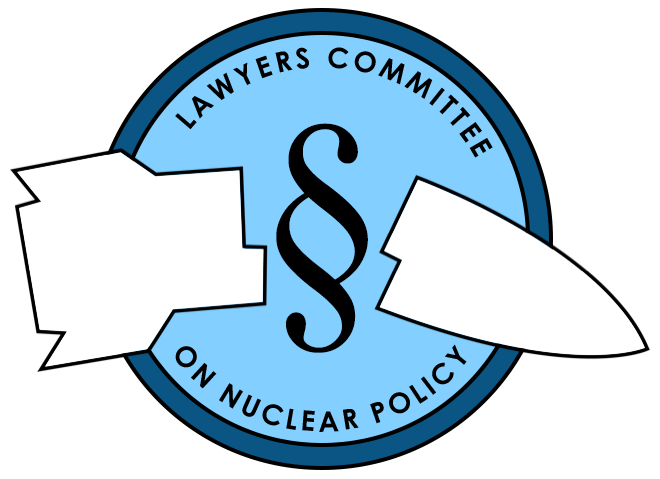Statement of Lawyers Committee on Nuclear Policy and Western States Legal Foundation on the Imminent Entry into Force of the Treaty on the Prohibition of Nuclear Weapons
24 October 2020
As of today, 50 states have ratified the Treaty on the Prohibition of Nuclear Weapons (TPNW). By its terms, the treaty will enter into force in 90 days, becoming legally binding for states that have joined the treaty.
The treaty was negotiated in 2017 by 122 states, none of them possessors of nuclear arms. They took responsibility for creating a path toward the global elimination of nuclear weapons, essentially because the world’s most powerful states—all nuclear-armed—are failing to do so despite the disarmament obligation set forth in the Nonproliferation Treaty.
The U.S. government reportedly has been pressing states that have ratified the TPNW to withdraw their ratifications so that the treaty does not enter into force. This tactic will not succeed. Further, the overall U.S. approach of opposing the TPNW, on display since negotiations began, is entirely wrongheaded. The United States should instead welcome the treaty as a reinforcement of obligations of non-acquisition of nuclear weapons set out in regional nuclear weapon-free zones treaties and the Nonproliferation Treaty and as a powerful statement of the moral, political, and legal principles that should guide the abolition of nuclear arms.
The TPNW robustly recognizes and reinforces existing international law requiring the non-use and elimination of nuclear weapons. That law applies to states whether or not they join the treaty, as the treaty’s preamble recognizes.
The preamble reaffirms the need for all states at all times to comply with international humanitarian law forbidding the infliction of indiscriminate harm and unnecessary suffering and with international human rights law, and considers that any use of nuclear weapons would be contrary to international humanitarian law.
It also reaffirms the universal obligation to pursue in good faith and conclude negotiations leading to nuclear disarmament in all its aspects under strict and effective international control. This obligation was affirmed in a unanimous conclusion of the International Court of Justice in a 1996 Advisory Opinion.
In an innovation in the nuclear weapons sphere reflecting the rise of “humanitarian disarmament,” the TPNW sets forth obligations of assistance to victims of testing and use of nuclear weapons and of environmental remediation of areas affected by testing and use. It also requires states parties in a position to do so to assist affected states parties with victim assistance and environmental remediation. These provisions are important because they recognize and address concretely the unacceptable suffering and devastation that have resulted from the use and testing of nuclear arms—which could result again if current trends in global affairs are not reversed.
The United States should roll back its opposition to the TPNW and instead should embrace the treaty’s vision of a more democratic world in which nuclear weapons have no place and of a paradigm shift toward human security rather than the security of states.
Lawyers Committee on Nuclear Policy and Western States Legal Foundation are affiliates of the International Association of Lawyers Against Nuclear Arms, a partner of the International Campaign to Abolish Nuclear Weapons.
For a PDF version, click here.

